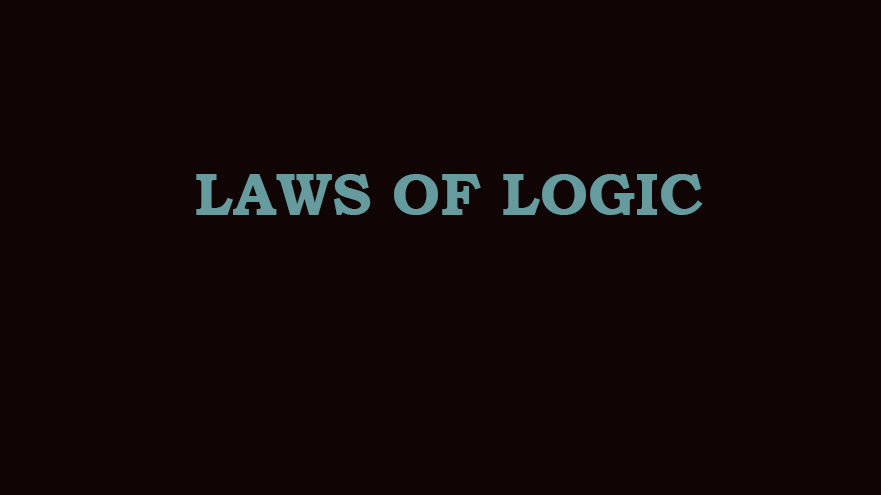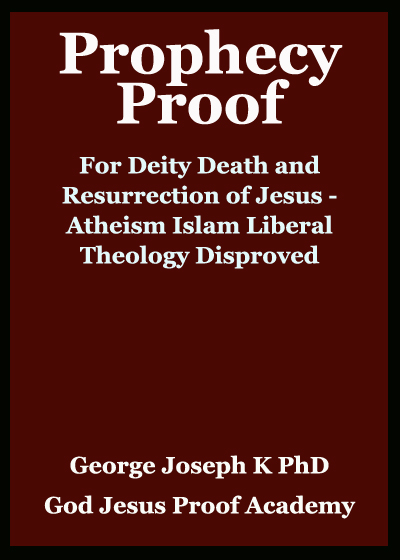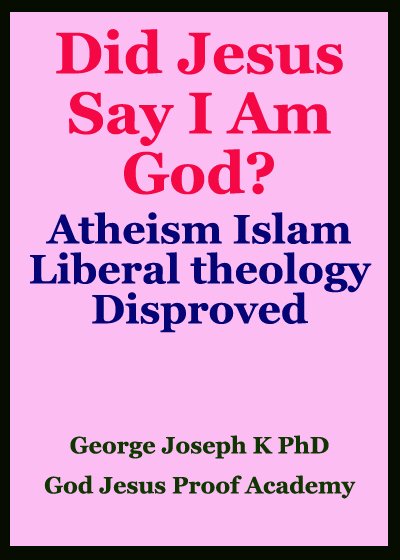
LAWS OF LOGIC
DEFINITION OF LOGIC
Logic is the systematic investigation and study of the principles of valid reasoning; in other words, of the principles on which the validity of reasoning depends (Mellone, p.14). ‘Logic is the study of right reason or valid inferences and the attending fallacies, formal and informal’ (Geisler p.12). ‘Logic is a way to think so that we can come to correct conclusions by understanding implications and the mistakes people often make in thinking’ (Geisler p.13). Logic is putting thoughts in order. Logos refers to the expression of thought or embodying of an idea. The best system of logic is the one which is most efficient in drawing correct conclusions from the premises. There may be different kinds of logic (Western and Eastern), but the basic laws of logic are the same.
Logic is a science of proof. It is concerned with the adequacy of different kinds of evidence. Its basic query is: how do you prove anything? Logic is one of the most powerful studies one can undertake. Logic polishes the innate instinct of rationality in man. Even though everybody thinks, not everybody thinks correctly. The discipline that helps one to think correctly is logic. Logic enables one to make correct reasoning and appropriate use of language. God is the basis of all logic (in the order of being). Logic originates from God. Since man is in the image of God, man has inherent in him some logic. The laws of logic are not invented, but discovered. The laws of logic are undeniable and self-evident. But logic is the basis of man’s knowledge of God (in the order of knowing). Because logic is the basis of all thought, including thought about God. Through logic we are not examining God, but examining our statements about God, whether they are true or false. Logic presupposes that some statements are true and some statements are false. Hence logic is God’s way for man to come to the knowledge of truth. Godly living and Godly thinking result in good logic. Theology is the rational discourse about God. It is the logic of God. Theology presupposes that rational propositions can be made about God. Logic is necessary for theology. Logic makes one reasonable, not rationalist. A reasonable person incorporates facts into his world view and is willing to change his conclusions. On the other hand, a rationalist will be unwilling even the Bible to change his conclusions which he has reached by reason. Only questions of objective truth are subject to logic. Emotive expressions like ‘alas’ is neither true nor false. Likewise aesthetic expressions are neither true nor false. But they are beautiful. They can be appreciated but not always analyzed.
LAWS OF LOGIC
The most basic law of human thought is the principle of contradiction (law of contradiction or law of non-contradiction). It is an event which occurs when two statements cannot be true at the same time in the same relationship. No two contradictory statements can both be true at the same time, in the same sense. Incompatible propositions cannot be true together. Eg. It is raining here now. It is not raining here now. A thing cannot be at the same time, in the same sense be itself and not itself. No entity can be both what it is and what it is not at the same time. A thing cannot both be and not be so and so. Eg. A cannot be both A and non-A at the same time and in the same relationship. Jesus cannot be Jesus and Krishna at the same time. (The principle of contradiction need not be proved. It is self-evident. One cannot deny the law of contradiction without contradicting oneself. Even for denying the law itself one has to use the law. In conversation one must define the terms. Lie is a contradiction between one’s statement and the actual state of affairs. To mean anything a term must include itself and exclude or contradict its opposite. Eg. Putting on the lamp is opposite of putting off the lamp).
Some other laws originate from the basic principle of contradiction. They are: *Law of identity. An entity or thing is identified with itself. Everything is what it is. Eg. A is A. John is John. The same term must have the same meaning. A term must have a fixed meaning clear in itself and distinct from other meanings. *Law of excluded middle. An entity must be either what it is or what it is not. A thing either is or is not so and so. Eg. A must be either A or non-A. A either is or is not B. There is no middle course available. Eg. John is either Christian or non-Christian. *The law of rational inference. Drawing valid inferences from what is known. Without it no one can prove anything. E.g. Based on the fact of the law of gravitation one can rationally infer that if a stone is thrown up, it would come back to earth. (The laws of logic are the tools for accomplishing the task 2Cor 10:5).



